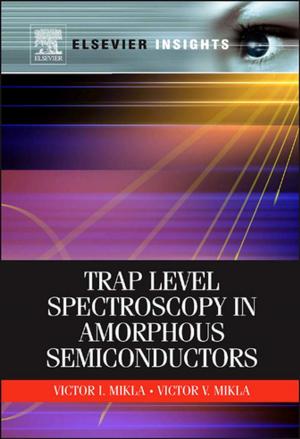From Gene to Protein: Translation into Biotechnology
Nonfiction, Science & Nature, Science, Chemistry, Technical & Industrial, Technology, Engineering, Chemical & Biochemical| Author: | ISBN: | 9780323144612 | |
| Publisher: | Elsevier Science | Publication: | December 2, 2012 |
| Imprint: | Academic Press | Language: | English |
| Author: | |
| ISBN: | 9780323144612 |
| Publisher: | Elsevier Science |
| Publication: | December 2, 2012 |
| Imprint: | Academic Press |
| Language: | English |
From Gene to Protein: Translation into Biotechnology is the 15th volume in the continuing series under the title ""Miami Winter Symposia"". The theme of the symposium is the translation of the basic research findings into the practical application of biotechnology. This book summarizes methodology and its applications that lie behind the practical innovations.
The book starts with reviews of techniques of eukaryotic cell culture, hybridoma technology and uses, and the in vitro synthesis of DNA and its use in the generation of protein analogs. Considerable space is devoted to development of monoclonal antibodies that promises to be the dominating tool of medical technology, both for diagnosis and therapy. Cloning into eukaryotic cells and methods of increasing the levels of gene expression are included. These topics reflect areas of intensive research that have important commercial and clinical value. Core chapters describe biological activities of cloned gene products, including reports on trials with human subjects of interferon, human insulin, and growth hormone. A panel session on horizons in biotechnology is also provided, looking forward to the directions of future research and its applications.
Biotechnologists, cell biologists, scientists, researchers, teachers, and students will greatly benefit from this book.
From Gene to Protein: Translation into Biotechnology is the 15th volume in the continuing series under the title ""Miami Winter Symposia"". The theme of the symposium is the translation of the basic research findings into the practical application of biotechnology. This book summarizes methodology and its applications that lie behind the practical innovations.
The book starts with reviews of techniques of eukaryotic cell culture, hybridoma technology and uses, and the in vitro synthesis of DNA and its use in the generation of protein analogs. Considerable space is devoted to development of monoclonal antibodies that promises to be the dominating tool of medical technology, both for diagnosis and therapy. Cloning into eukaryotic cells and methods of increasing the levels of gene expression are included. These topics reflect areas of intensive research that have important commercial and clinical value. Core chapters describe biological activities of cloned gene products, including reports on trials with human subjects of interferon, human insulin, and growth hormone. A panel session on horizons in biotechnology is also provided, looking forward to the directions of future research and its applications.
Biotechnologists, cell biologists, scientists, researchers, teachers, and students will greatly benefit from this book.















